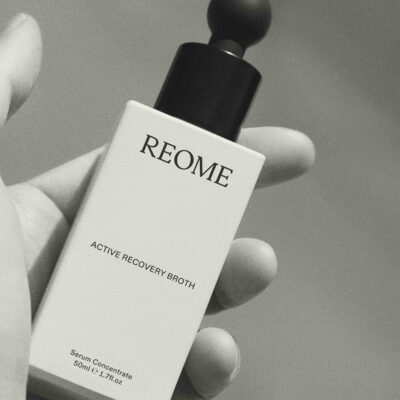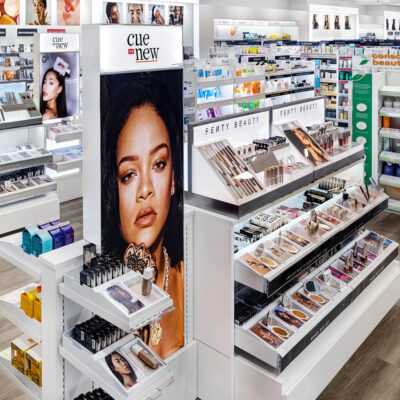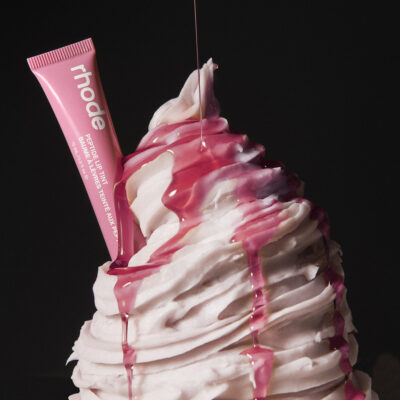
Can Skincare Shift Away From Promising Immediate Results?
In a The Zoe Report article published last month, beauty journalist Megan McIntyre pronounced that “slow beauty is this year’s answer to skinimalism.” She writes, “The slow skin care movement eschews instant gratification for an effective, simple, and consistent routine using gentler, yet still highly effective products.”
We are curious if slow beauty will truly gain traction in the skincare segment. So, for our latest No Stupid Questions story, we asked 17 beauty entrepreneurs and executives the following questions: Do you think skincare brands will move away from promising quick results? How can they communicate effectively that results take time while still driving sales?
- Charlotte Palermino Co-Founder and CEO, Dieux
This is a layered question, and I'm biased because I think transparent marketing is important. I think it's odd when a brand for skincare is trying to go after everyone or say something is universal. Nothing is, that's OK!
From my perspective, if you're talking about histological changes to the skin, consumers are much more savvy. They know nothing gives an overnight miracle. Other than a peel which can be fast results, most actives take time. Brands that are intentional will move away from it.
Some brands are recognizing the shift and are clarifying that some results are instant (cosmetic), and long-term use leads to changes in the skin (histological). This is something Dieux has been doing, and we are heartened to see more transparency in skincare.
That being said, you're always going to have someone that promises a miracle in a bottle. While some products like a chemical peel are pretty instant results, the vast majority of what you buy needs a ritual, and brands not being clear on can lead to under-delivering. Customers will always need their grain of salt when consuming an advertising message.
Some results are cosmetic, that isn't a bad thing. We talk about this with Instant Angel, our moisturizer. That instant glow, that instant luminescence, it's satisfying! But the win is with long-term use if it's suitable for your skin.
Same with our eye cream, we talk through our light diffusers. They instantly blur and the hydration, which instantly plumps, but long-term use is where you'll see a moderate, lasting plumping effect with the peptides. Being clear on what to expect from us is always a positive, not a negative.
- Jordan Samuel Pacitti Founder and CEO, Jordan Samuel Skin
While I’m not sure if many brands will move away from this, I don’t think that brands promising quick results with a cosmetic product is ever a good idea. Of course, things like smoother skin after exfoliating, more hydrated skin after moisturizing or the immediate glow from a facial oil can all be lovely instant aspects. However, these instantaneous effects aren’t providing the full story of a product’s capabilities.
As an aesthetician, emphasizing the importance of a steady and consistent routine has always been the cornerstone of my philosophy. Consistency is simply the best way to experience the long-term results cosmetic products can provide while minimizing irritation, a compromised barrier or skin confusion that can result from stopping and starting different products constantly without ever giving them the chance to work.
Being honest from the start, educating on what the ingredients in the formula can and cannot do and never delivering false promises will always be the answer in managing expectations and developing brand loyalty. This has been at the forefront of our strategy from the very beginning, growing our community through consistent education and consistent skincare routines.
- Cyndi Ramirez-Fulton Founder, Chillhouse
Whether or not they want to, I think they'll have to. Brands are under more scrutiny than ever before. Long gone are the days where they're praised for their fancy campaigns and pretty packaging.
Consumers know ingredients, and they have dermatologists. They're highly educated in skincare, especially the younger generation. Transparency will continue to be key here, and efficacy will range from person to person, which brands will have to disclose now more than previously.
I think treating your product as an experience versus a vehicle for the end game is crucial. Giving people other reasons to make that product a part of their ritual is going to help with loyalty and, therefore, sales.
Efficacy is No.1, yes, but the overall sensation of how that product makes the consumer feel is equally as important. It should tell another story outside of results.
- Anne Beal Founder and CEO, AbsoluteJOI
I’m glad to see a discussion about taking a measured approach to skincare and the emergence of the slow skin movement. But I want to highlight that this approach is particularly relevant to skin of color.
At AbsoluteJOI, we focus on the skincare needs of people with melanin-rich skin and have always taken a slow, minimalist approach to skincare that focuses on achieving a healthy balance as the secret to radiance.
This philosophy is grounded in the fact that over 60% of people with deeper skin tones have sensitive skin as compared to 35% of the general population, and we need non-irritating skincare routines.
In addition, when melanin-rich skin gets irritated, it can develop discolorations and hyperpigmentation that lasts for months. As a result, I am a major proponent of taking a slow and measured approach to skincare and focusing on reducing inflammation, supporting the microbiome and promoting good hydration for healthy skin. Whether skin is oily, dry or combination, this is an approach that is beneficial for most skin types.
The other consideration is your skincare needs are constantly changing. Whether it’s due to your menstrual cycle, stress, pregnancy, changes in season, aging, travel and changes in water, you need to be able to monitor your skin and adjust as needed. So, having a simple, consistent routine that focuses on skin health makes it easier to adjust your skincare routine and respond to these constant changes.
The other reality is we are all busy living very full lives, and most of us cannot commit to daily multistep skincare routines. It is better to have a three-step routine you can do every night instead of a five-step routine that happens only twice per week.
- Angela Ubias Co-Founder and Chief Product Officer, Common Heir
Yes and no. I think savvy brands, especially indie brands who have the advantage of staying nimble, will continue to move away from these outdated instant gratification marketing tactics. Less nimble, larger brands, I'm not sure we'll ever see the shift completely away from the promise of quick results.
With the rise of social media and the “skinfluencer” we’re looking at a more educated skincare consumer than ever before. This consumer knows that any promise of “instant fountain of youth” is likely bogus. That said, who doesn’t want to see immediate results? It's a delicate balance.
I think the best approach for brands is leaning into transparency and education around what can be expected from their formulas. It’s an approach we’ve taken at Common Heir that has been extremely successful. That educational component and sharing clinical trial results at different time frames (instant versus four weeks versus eight or 12 weeks of use) so that consumers understand consistency is what will unlock optimal results has worked quite well for us.
- Narae Chung Co-Founder, Cardon
I think we will start seeing more brands pursuing this trend around slow beauty. My background working with skincare/grooming brands in Korea such as SK-II, Olay and Gillette gave me insight into K-Beauty principles centered around gentle formulas and prevention rather than quick transformations.
Traditionally, brands tend to promise fast, dramatic results, but that can be harsh for many skin types. The slow beauty movement and the ethos behind Korean skincare place value on formulas that deliver results over time while being gentle and soothing on the skin.
At Cardon, we choose gentle but powerful ingredients that prioritize skin health and long-term benefits, rather than quick-fix solutions. For example, our toner wipes use mild exfoliating ingredients such as PHA instead of more abrasive ingredients like AHA or BHA.
We avoid ingredients like retinol known to disrupt sensitive skin types. Instead, we utilize soothing active ingredients like niacinamide and peptides to promote long-term skin health. In line with the principles of Korean skincare, these ingredients work in the long run to maintain and improve skin health with a lower risk of irritation.
However, our customer base, mostly men, tends to expect immediate results from skincare products. To manage these expectations, we educate our customers on the importance of consistency and dedication to their skincare routine, comparing it to a workout.
We recommend using our products for three to four weeks before expecting to see progress and stress the importance of patience and persistence in order to achieve the best results. By being transparent about the ingredients and processes involved in our products and sharing realistic timelines and expectations for results, we aim to deliver the results customers desire while promoting overall skin health.
- Laura Burget Co-Founder, Three Ships Beauty
I don't think we will see an industry-wide shift from all brands and that all brands will move away from promising quick results. However, in a world where it feels like a new celebrity skincare brand is announced every week or where you can always find a new product to try from social media, I do think that there will be a growing segment of consumers who are educating themselves and expecting more from their skincare brands, and as a result questioning brands and their claimed results in the process, as consumers should.
There's no silver bullet answer on how to communicate as a brand that results take time. This relies on the trust that you've built with your consumers. If there is honesty and transparency from the brand, this will be an easy concept for your consumers to understand. But transparency is something that's been lacking in the industry and what needs to change.
- Desiree Verdejo Founder and CEO, Hyper Skin
I'm really not a fan of the word "slow” because it implies that there is a fast alternative, which doesn’t exist for many concerns, but I do believe in being realistic.
Our hero products speak to hyperpigmentation or dark spots, which are not treated overnight. We had to lean heavily into education, humor-filled memes and customer testimonials to get the point across that it might take thirty days or more before hyperpigmentation starts to fade.
It never crossed our mind to promise quick results because misleading customers in that way only leads to disappointing customers in the long run. Our customers are in a long-term relationship with us and because we're upfront about expectations they come in knowing it.
- Sarah Otto Founder, Otto Skin Goods
I’m a firm believer in “slow beauty.” It’s unrealistic for skincare brands to promise quick fixes and overnight results. Before I started my own skincare brand, I worked in dermatology as a nurse practitioner for many years. During that time, I became aware of all the empty promises and unrealistic claims that products often promote. It’s highly unlikely that everyday skincare could ever have immediate results (not even medical-grade ingredients work overnight!).
Otto Skin Goods has always been about less-but-better skincare. Instead of releasing new, trendy products every few months, our brand focuses on consistent use of gentle, high-quality products made with clinically backed ingredients.
This has lead to many loyal consumers and a high repurchase rate. We are very transparent that results take anywhere between six to eight weeks, but slow and steady is what we value. Otherwise, you risk overloading your skin with too many ingredients, which can lead to irritation and skin barrier issues. Ultimately, your skin doesn’t need much to function at its best.
- Taylor Frankel Co-Founder and Chief Brand Officer, Nudestix
As consumers continue to do their own research on skincare products, ingredients and efficacy, I do believe that they will become more skeptical of quick results and will require peer reviews, consumers panels, clinical studies and before-and-afters.
As a brand, we recognize the importance of credibility and take our results claims very seriously. We work closely with our labs and in-house R&D team to conduct consumer panels and clinical studies.
In addition, we are very cautious about the language that we use when it comes to results, as there are many claims that are frequently used in the industry that can be quite misleading. All-in-all, quick results claims will be tested by consumers, and If your products do not stand up to your claims, they will look elsewhere.
In a world that has become trained to expect instant gratification and results, it is challenging to drive immediate sales, especially in the skincare world where results may vary based on skin type, products used in conjunction, consistency of use, etc. We understand that skincare is a long game versus the makeup category, where trust is essential to driving sales and a loyal community.
To do so, we demonstrate and educate on our two- to four-week journey via consumer panels and paid creator content. This showcases to the customers that results will and can be achieved, but do require time to see true efficacy. Once you’ve garnered sales data on bestselling products or hero SKUS, this can be used to acquire new customers.
- Rebecca Boston CMO, True Botanicals
I think that consumers are gaining a much more informed understanding of overall skin health, and with that a better understanding that real transformation takes time as with all parts of our bodies! This has been incredibly exciting for us at True Botanicals because our philosophy has always been centered around balancing the ecosystem of the skin, supporting the microbiome and helping to strengthen the skin's barrier, which all take time.
True Botanicals has experienced a lot of growth and success recently by inviting people to "take the True Test" and commit to trying our products for 30-plus days because consumers now understand that that's how long it takes to start to balance the skin's microbiome and strengthen the skin's barrier. And we're thrilled to see the shift away from quick fixes because those are often packed with harsh ingredients that can do more damage than good.
I also think that the eye skincare category is particularly ripe for a shift to “slow beauty” because so many of the top eye creams are actually formulated with pigments and shimmer that fake instant results, while the most effective eye creams like the True Botanicals Resurrection Radiance Eye Cream are clinically proven to deliver significant, real results after four to six weeks of use.
I'd like to think that the shift to slow beauty is much more than a trend, and it's here to stay because beauty consumers are so much more informed and savvy nowadays.
- Sejal Patel Co-Founder and CEO, Plantkos
As we’ve seen with “skinimalism,” more is not always good, and for results with skincare products, quick is not always better, and slow is not always bad. It’s all about the ingredients and formulation.
For example, if the ingredients and formulation are designed to work within deeper layers of the skin, addressing the mechanisms by which and where the concerns occur, it may take time to see expected results because the products are working on root cause of the issue rather than providing a Band-Aid effect. Also, results are usually subjective unless measured objectively and based on individual perception, so what one may see as quick result to other it may not be.
Therefore, I believe, rather than focusing on promising quick results, brands should lean in more on sustained benefits of their products. For example, benefits such as improved hydration, health of the skin microbiome or skin flora and skin barrier, which contribute to more healthy skin in the long term.
Consumer education is the key in doing so. Aside from how to use the products or what ingredients to look for, we need to explain why and how certain skin concern occur. For example, how do dark spot or hyperpigmentation occur or dehydrated skin occur? This provides a way to then explain how the products work and why results may take time. Coupling this with convincing before-and-after photos can help drive the message home.
As a pharmacist, when I am talking to my patients about their medication, I let them know how the medication works and how long it may take before expecting some benefits. Consumers crave knowledge, and as an industry we need to take what we are sharing with them a layer deeper.
Another thing is to make sure we keep skincare routines simple where a consumer is able to incorporate it into their daily routine without thinking twice. Where we run into problem is asking a consumer to spend 30 minutes day and night in a multistep routine using many different products and devices. This is where the expectation of a quick result comes into play. If I am going to spend that kind of time and money, the results better be quick.
But is this a sustainable routine? For vast majority, absolutely not. Simpler routines with steady and effective results should be the goal.
- Casey Georgeson Founder and CEO, Saint Jane Beauty
At Saint Jane, we believe results come from a deep commitment to nurturing your skin with rituals that go beyond quick results. Yes, the visual results are amazing, but most are surface level at best.
When you're delivering the right nutrients to your skin barrier, you're promoting real balance and homeostasis, which is like a state of healing. Your body is in a constant pursuit of healing; your skin wants to heal.
When you deliver skincare that's packed with essential vitamins and micronutrients, you're empowering your skin to strike that optimal balance. Quick results are temporary. Delivering meaningful nutrients to the one skin you have for your entire life is a core part of our philosophy.
We believe in sharing before-and-after results over periods of days or weeks or months. We follow our clients in their skincare journeys and often their transformations take time. The transparency involved in communicating that each person's skin challenges are unique and to be patient with the trial and error involved in striking the optimal balance is what inspires trust. It's that trust that leads to sales. But being patient with your skin is essential.
- Alisa Metzger Co-Founder, INNBeauty Project
The average viral TikTok video is 60 seconds long, and beauty shoppers are consuming viral content on a daily basis, creating an appetite for instant gratification and visible results.
As a rapidly growing skincare brand, INNBeauty Project thoughtfully approaches product innovation to strike a balance between of-the-moment consumer desires and creating highly efficacious formulas that deliver long-term results.
As skincare industry experts, we know it can take anywhere from two to eight weeks of consistent use to see the range of clinically proven benefits our high-powered formulas can provide, so we strategically invest in impactful clinical testing, a variety of before-and-afters on all skin tones, and multitasking product formulations for customers to instantly see and feel both instant benefits and long-term results.
INNBeauty’s latest launch, Bright & Tight Eye Cream, sold out nationwide at Sephora in less than 10 days. This viral sensation was powered by an innovative, efficacious formula that visibly brightens and firms with just one application while also reducing the look of fine lines and wrinkles as well as targeting hyperpigmentation and supporting microcirculation to reduce dark circles over time.
We created highly visual before-and-afters showing one-time usage and visible results after six weeks, so even though it takes time and routine use to achieve, consumers can immediately see and understand the long-term effectiveness.
- Candice Beroukhim Co-Founder, Serum Doctor
It depends on the product. For example, physical and chemical exfoliants can show instant results, but it’s not for everyday use or skin type.
I want to believe brands aren't fabricating the desired results. However, the consumer must exercise consistency and diligence in using the products to achieve their ultimate skincare goals. Brand communication on consistency and transparency go hand in hand.
- Anna Lahey Founder, Vida Glow
With the rise of TikTok and its huge appetite for beauty hacks and fast fixes, I expect some brands will feel compelled to respond with products that promise of fast results.
However, consumers now have access to so much more information and beauty education that debunks the idea of overnight results. The beauty consumer in 2023 is far more discerning. They’ll make buying decisions based on their own research and brand trust rather than unrealistic claims.
A consumer needs to trust that they will eventually see results from using a product to invest not only their money, but their time. Visual representations of results such as before-and-afters are powerful tools for communication and conversion.
A customer will base their buying decisions on the understanding that this product has been effective for someone else, so it will be effective for them. At the end of the day, if a customer trusts that a product will solve their concerns with consistency and time, they will purchase.
- Josh Rosebrook Founder, Josh Rosebrook
There are products that deliver immediate results after a couple of minutes, hours or days, and there are products that deliver long-term results that require a few weeks or months to see results. This depends on the formulation and materials used.
For example, well-formulated moisturizers and hydrators will always deliver immediate results for most people. Products that improve the structure of the skin like peptides and retinoids, can require weeks to months to see results.
Brands should commit to education-focused marketing to support products that offer long-term results, but most brands won’t commit to accurately educating the consumer, I believe. Instead, most brands prefer perpetuating misinformation and exaggerated claims to drive sales. It’s usually based on activating a fear or fantasy impulse in the consumer.
I don’t believe the beauty industry as a whole will ever change in terms of baseline marketing tactics. There are brands in the indie space that market ethically and commit to education beyond misleading claims.
I do believe in the intelligence of the consumer and know that these customers tire of being misled, and many will continue to gravitate more toward brands that have this marketing integrity in the future.
If you have a question you’d like Beauty Independent to ask beauty entrepreneurs and executives, please send it to editor@beautyindependent.com.






Leave a Reply
You must be logged in to post a comment.